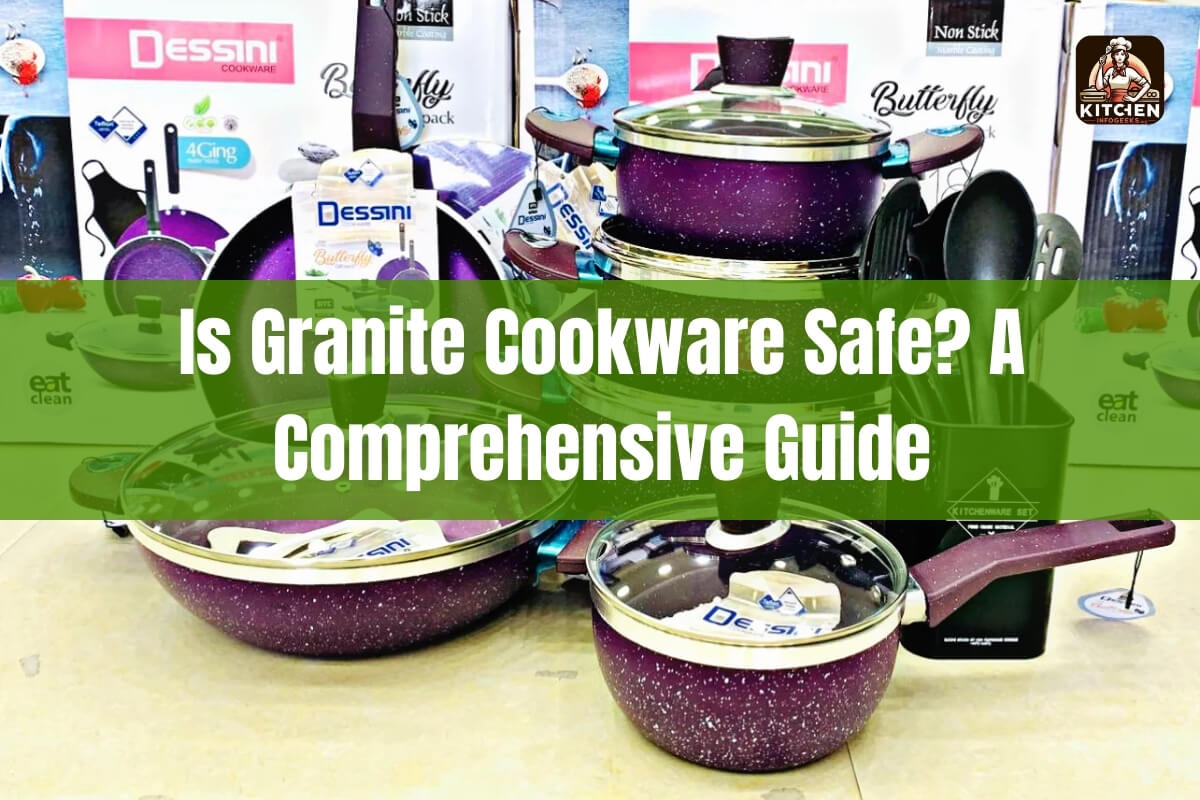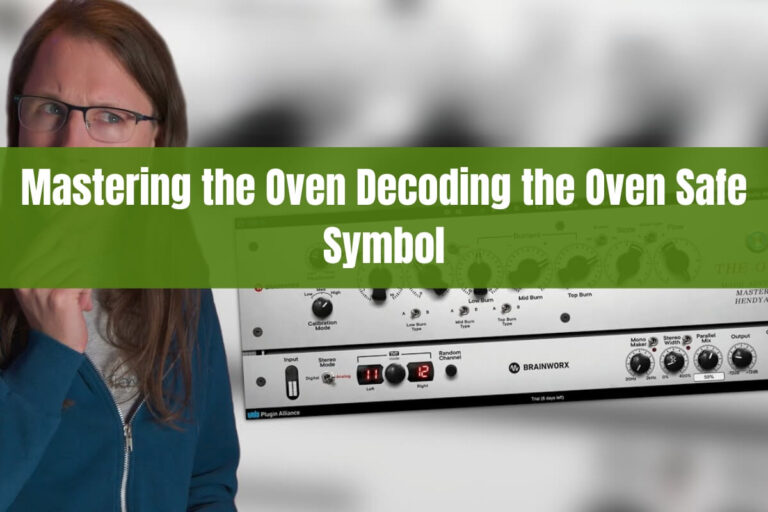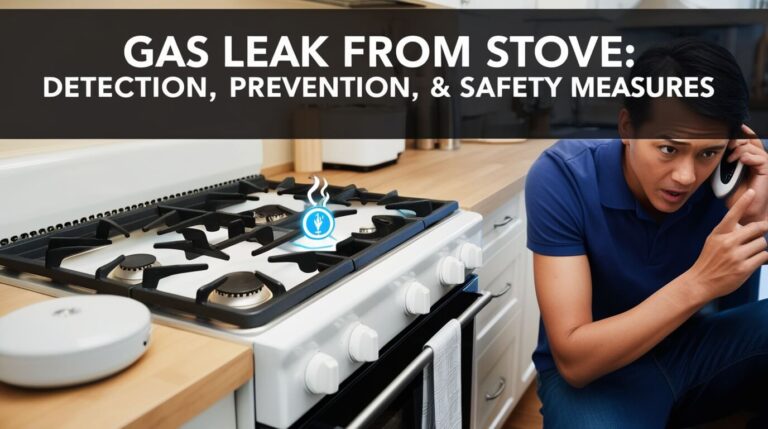
When it comes to cookware, safety is of the utmost importance. After all, the pots, pans, and utensils we use to prepare our meals should not be introducing harmful substances into the food we consume. One type of cookware that has gained popularity in recent years is granite cookware. But is granite cookware truly a safe option for your kitchen? In this comprehensive guide, we’ll delve into the safety of granite cookware, exploring its composition, potential risks, and the steps you can take to ensure you’re cooking with confidence.
What is Granite Cookware?
Granite cookware, despite its name, is not actually made from the natural stone granite. Rather, it is a type of cookware that features an aluminum or carbon steel core coated with a mineral-based, non-porous surface. This surface is designed to mimic the appearance of natural granite, hence the name “granite cookware.”
The key advantage of this construction is that the mineral-based coating is inert, meaning it will not leach harmful chemicals into your food, unlike some traditional nonstick coatings. Additionally, granite cookware is known for its durability, heat distribution, and easy cleanup.
Is Granite Cookware Safe?
The safety of granite cookware largely depends on the specific materials and coatings used in its manufacture. The good news is that, in general, granite cookware can be a safe option for your kitchen, provided it is free of certain harmful chemicals.
Potential Safety Concerns
The primary safety concerns with granite cookware relate to the presence of two specific substances: PFOA (perfluorooctanoic acid) and PTFE (polytetrafluoroethylene), also known as Teflon.
PFOA is a synthetic chemical that was commonly used in the production of nonstick coatings, including those found on some granite cookware. This substance has been linked to various health concerns, including thyroid issues, developmental problems, and even cancer. Fortunately, the use of PFOA in cookware manufacturing has been largely phased out in recent years due to these health risks.
PTFE, on the other hand, is the main ingredient in the classic Teflon nonstick coating. While PTFE is generally considered safe for use in cookware at lower temperatures, it can release toxic fumes when heated to high temperatures, which can be harmful to both humans and pets, especially birds.
Ensuring Safety
To ensure the safety of your granite cookware, it’s essential to carefully research the specific brand and product you’re considering. Look for granite cookware that is explicitly labeled as PFOA-free and PTFE-free (or “Teflon-free”). These coatings are the ones you want to avoid, as they can pose potential health risks.
Additionally, it’s important to properly care for your granite cookware to maintain its integrity. Avoid using metal utensils, which can scratch the surface and potentially expose the underlying core material. Instead, opt for wooden, silicone, or plastic utensils. Additionally, be mindful of the heat levels you use, as high heat can degrade the nonstick coating over time.
Benefits of Granite Cookware
Despite the potential safety concerns, granite cookware does offer several benefits that make it a popular choice for many home cooks.
Durability and Longevity
Granite cookware is known for its exceptional durability and longevity. The mineral-based coating is highly resistant to scratches, chips, and other forms of wear and tear, allowing your cookware to maintain its nonstick properties for an extended period.
Nonstick Properties
One of the primary advantages of granite cookware is its nonstick capabilities. The smooth, slick surface allows food to easily slide off, reducing the need for excessive oils or butter during cooking. This can be particularly beneficial for health-conscious individuals who are trying to reduce their intake of unhealthy fats.
Easy Cleaning and Maintenance
Granite cookware is also renowned for its easy cleaning and maintenance. The nonstick surface makes it simple to wipe away any food residue, and the cookware is often dishwasher-safe, further simplifying the cleaning process.
Versatility
Granite cookware is versatile and can be used on a variety of cooking surfaces, including gas, electric, and induction cooktops. It is also oven-safe, allowing you to use it for a wide range of cooking techniques, from stovetop searing to oven-baked dishes.
Choosing Safe Granite Cookware
When selecting granite cookware, it’s essential to prioritize safety and quality over aesthetics or price. Look for products that are clearly labeled as PFOA-free and PTFE-free, ensuring that you’re not introducing potentially harmful chemicals into your cooking environment.
Additionally, pay attention to the overall construction and materials used in the cookware. High-quality granite cookware should have a sturdy, durable core, such as aluminum or carbon steel, with a thick, evenly distributed mineral-based coating.
It’s also a good idea to research the brand’s reputation and customer reviews to get a sense of the product’s long-term durability and performance. A well-made, high-quality granite cookware set may cost more upfront, but it can provide years of safe, reliable use in your kitchen.
Granite Cookware vs. Other Materials
When it comes to cookware, granite is just one of several popular options available on the market. Let’s take a closer look at how granite cookware compares to some other common materials:
Stainless Steel
Stainless steel cookware is known for its durability, ease of cleaning, and resistance to corrosion. While it may not have the same nonstick properties as granite, it is a safe and reliable choice for many home cooks. The main advantage of stainless steel is that it does not contain any potentially harmful coatings or materials.
Cast Iron
Cast iron cookware is renowned for its excellent heat retention and distribution, as well as its natural nonstick properties when properly seasoned. However, cast iron can be heavier and more demanding in terms of care and maintenance compared to granite cookware.
Ceramic
Ceramic cookware, like granite, features a nonstick coating that is often derived from natural materials. Ceramic cookware is generally considered a safe and eco-friendly option, although the durability of the coating may not be as long-lasting as granite.
Ultimately, the choice between granite cookware and other materials will depend on your specific needs, cooking habits, and personal preferences. Each type of cookware has its own unique set of benefits and drawbacks to consider.
Tips for Using Granite Cookware Safely
To ensure the long-term safety and performance of your granite cookware, it’s important to follow these guidelines:
- Monitor the Condition of the Coating: Keep a close eye on your granite cookware, looking for any signs of wear, scratches, or chipping in the nonstick coating. If the coating becomes damaged, it’s best to replace the cookware to prevent potential leaching of the underlying core material.
- Use Appropriate Utensils: Avoid using metal utensils, which can scratch the surface of the granite cookware. Opt for wooden, silicone, or plastic utensils instead to preserve the nonstick coating.
- Control Heat Levels: When cooking with granite cookware, it’s essential to use low to medium heat. Exposing the cookware to high temperatures for extended periods can degrade the nonstick coating and potentially release harmful fumes.
- Proper Cleaning and Storage: Hand-wash your granite cookware using mild soap and warm water. Avoid putting it in the dishwasher, as the high heat and harsh detergents can damage the coating. Store the cookware in a dry, cool place to prevent any moisture buildup.
By following these simple tips, you can help ensure the long-term safety and performance of your granite cookware, allowing you to enjoy the benefits of this popular cooking material for years to come.
Conclusion
In conclusion, granite cookware can be a safe and reliable option for your kitchen, provided you choose products that are PFOA-free and PTFE-free, and you take the necessary precautions to maintain the integrity of the nonstick coating. By understanding the potential safety concerns, the benefits of granite cookware, and the best practices for using and caring for your granite pots and pans, you can make an informed decision about whether this type of cookware is the right fit for your home cooking needs.
Remember, when it comes to the safety of your cookware, it’s always better to err on the side of caution. Take the time to research your options, read product reviews, and make a choice that prioritizes your health and well-being. With the right granite cookware and proper care, you can enjoy delicious, nutritious meals prepared in a safe and sustainable way.






